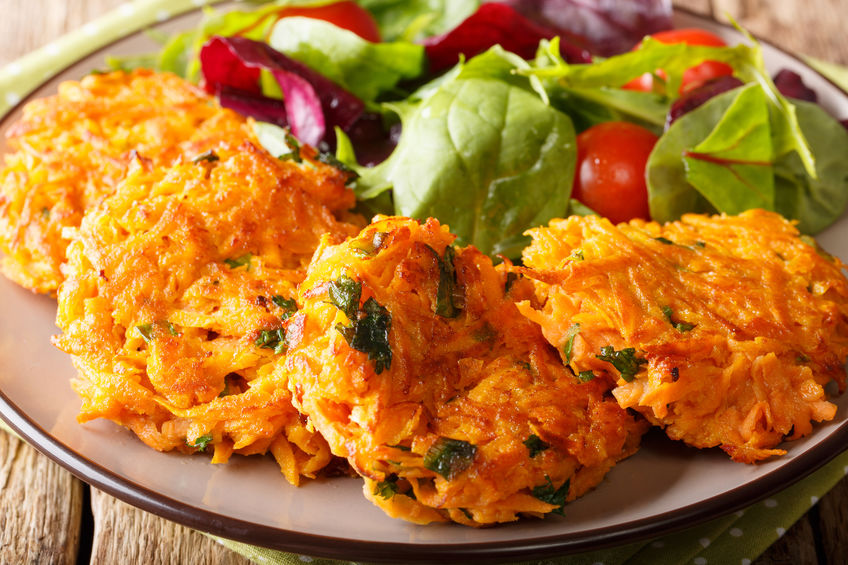What are the best foods for sleep?
With as many as 35% of American adults suffering from symptoms of insomnia, it’s understandable that there’s a strong desire to take advantage of food and drinks for better sleep.
Both diet and sleep are complex, which means there’s no silver bullet or single food that is guaranteed to help with sleep. However, there are some foods and drinks that may make it easier to get a great night’s sleep.
Best Foods for Sleep
Kiwi
• The kiwi or kiwifruit is a small, oval-shaped fruit popularly associated with New Zealand even though it is grown in numerous countries. There are both green and gold varieties, but green kiwis are produced in greater numbers.
• Kiwifruit possess numerous vitamins and minerals3, most notably vitamins C and E as well as potassium and folate.
• Some research has found that eating kiwi can improve sleep4. In a study, people who ate two kiwis one hour before bedtime found that they fell asleep faster, slept more, and had better sleep quality.
Tart Cherries and Tart Cherry Juice
• As the name indicates, tart cherries have a distinct flavor from sweet cherries. Sometimes called sour cherries, these include cultivars like Richmond, Montmorency, and English morello. They may be sold whole or as a tart cherry juice.
• Several studies have found sleep benefits5 for people who drink tart cherry juice. In one study, people who drank two one-cup servings of tart cherry juice per day were found to have more total sleep time and higher sleep efficiency.
• These benefits may come from the fact that tart cherries have been found to have above-average concentrations of melatonin, which is a hormone that helps regulate circadian rhythm and promote healthy sleep. Tart cherries may also have an antioxidant effect that is conducive to sleep.
Malted Milk and Nighttime Milk
• Malted milk is made by combining milk and a specially formulated powder that contains primarily wheat flour, malted wheat, and malted barley along with sugar and an assortment of vitamins. It is popularly known as Horlick’s, the name of a popular brand of malted milk powder.
• In the past, small studies found that malted milk before bed reduced sleep interruptions6. The explanation for these benefits is uncertain but may have to do with the B and D vitamins in malted milk.
• Milk itself contains melatonin, and some milk products are melatonin-enriched. When cows are milked at night, their milk has more melatonin, and this milk may be useful7 in providing a natural source of the sleep-producing hormone.
Fatty Fish
• A research study found that fatty fish may be a good food for better sleep8. The study over a period of months found that people who ate salmon three times per week had better overall sleep as well as improved daytime functioning.
• Researchers believe that fatty fish may help sleep by providing a healthy dose of vitamin D and omega-3 fatty acids, which are involved in the body’s regulation of serotonin. This study focused particularly on fish consumption during winter months when vitamin D levels tend to be lower.
Nuts
• Nuts like almonds, walnuts9, pistachios, and cashews are often considered to be a good food for sleep.
• Though the exact amounts can vary, nuts contain melatonin as well as essential minerals like magnesium10 and zinc11 that are essential to a range of bodily processes.
• In a clinical trial using supplements, it was found that a combination of melatonin, magnesium, and zinc helped older adults with insomnia12 get better sleep.
Rice
• Studies of carbohydrate intake and sleep have had mixed results overall, but some evidence connects rice consumption with improved sleep.
• A study of adults in Japan13 found that those who regularly ate rice reported better sleep than those who ate more bread or noodles. This study only identified an association and cannot demonstrate causality, but it supports prior research that showed that eating foods with a high glycemic index around four hours before bedtime helped with falling asleep14.
• At the same time, sugary beverages and sweets have been tied to worse sleep15, so it appears that not all carbohydrates and high glycemic index foods are created equal. Additional research is necessary to fully identify the sleep-related effects of different carbohydrates.
• The impact of carbohydrates on sleep may be influenced by what is consumed with them. For example, a combination of a moderate amount protein that has tryptophan, a sleep-promoting amino acid, and carbohydrates may make it easier16 for the tryptophan to reach the brain. Turkey is an example of a protein with high levels of tryptophan17.
Click here to read about best foods for sleep.






